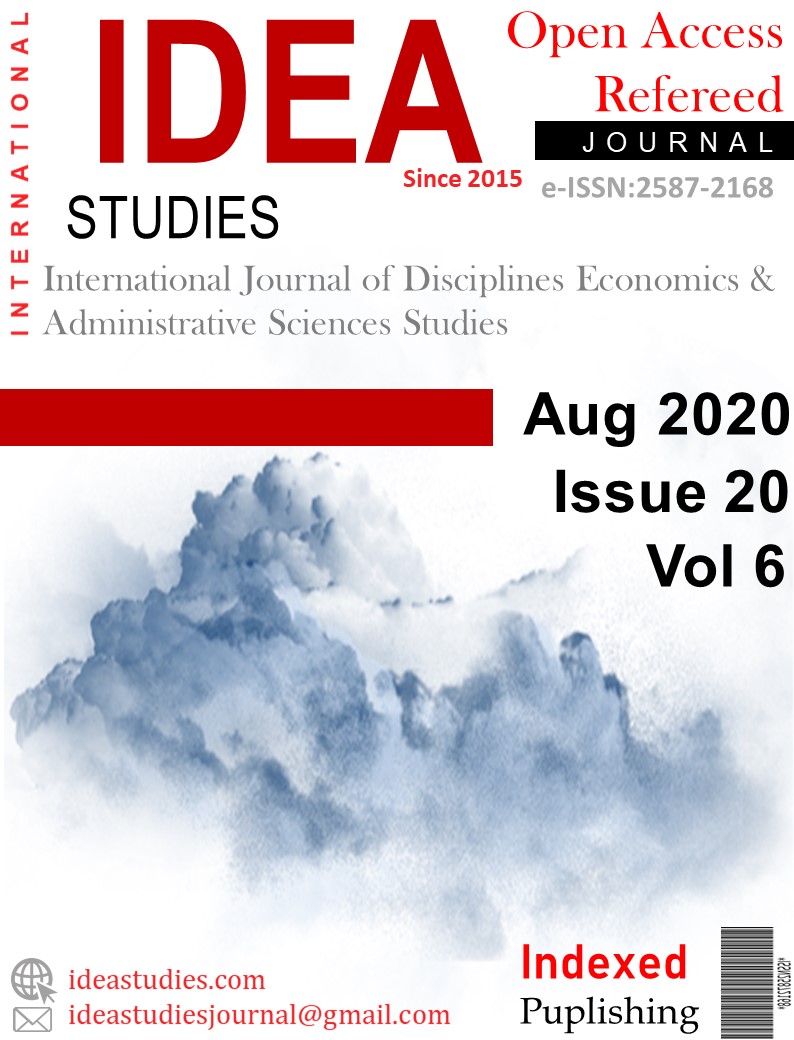Author :
Abstract
Kişisel verilerin korunması yalnızca 07.04.2016 tarih ve 29677 Sayılı Resmî Gazetede 6698 numara ile yayımlanan Kişisel Verilerin Korunması Kanunu kapsamı çerçevesinde değerlendirilemeyecek kadar karmaşık ve birçok farklı disiplin (sosyoloji, psikoloji, sosyal-psikoloji, kriminoloji, toplum bilimi vb.) ile birlikte ele alınması gereken bir kavramdır. Yine, kurumsal verilerin korunmasında da kişisel verilerin korunmasına benzer durum ve hassasiyetler söz konusudur. Sosyal Mühendislik ise bu alanların başında yer almaktadır. Olguları ve süreçleri değerlendirirken karşılıklı etkileşimin önemi kişisel ve kurumsal veriler ile Sosyal Mühendislik arasında da kendini göstermektedir. Bu çalışmanın amacı, gün geçtikçe daha çok sayısallaşan dünyamızda, hiç olmadığı kadar önem arz eden veri ve veri güvenliği bağlamında kişisel ve kurumsal verilerin korunması hususları ele alınırken Sosyal Mühendislik’den bağımsız olarak irdelenemeyeceğinin daha net anlaşılabilmesine katkı sunmaktır. Literatür araştırması yapılarak gerçekleştirilen bu çalışmada, kişisel ve kurumsal verilerin korunmasında hukuksal düzenlemeler ve teknolojik önlemlerin yanı sıra, eğitilmiş insan kaynağının halen en önemli ve hassas unsurların başında yer aldığı görülmüştür. Bu çalışmada, kişisel ve kurumsal verilerin korunmasına yönelik düzenleme ve çalışmalar yapılırken kesinlikle Sosyal Mühendislik’in göz ardı edilmemesi gerektiği sonucuna ulaşılmıştır.
Keywords
Abstract
The protection of personal data is a concept that is too complex to be evaluated only within the framework of the Law on Protection of Personal Data published in the Official Gazette with a number 6699 on April 07, 2016 and must bu dealt with in many different disciplines (e.g. sociology, psychology, social-psychology, criminology, social science) and fields. Similarly, there are similar situations and sensitivities in the protection of institutional data as protection of personal data has. Social Engineering is at the top of these fields. The importance of interactions in evaluating cases and processes is also evident between personal and institutional data and Social Engineering. The aim of this study is to contribute more clearly to the fact that the protection of personal and institutional data in the context of data and data security, which is more important than ever in our digitalizing world, cannot be examined independently from Social Engineering. In this study, which was carried out by reviewing the literature, it was observed that trained human resources are still among the most important and sensitive elements in addition to legal regulations and technological measures in the protection of personal and corporate data. In this research, it is concluded that Social Engineering should definitely not be ignored during the the regulations and studies for the protection of personal and institutional data.
Keywords
- ACKOFF, R. L. (1989). From Data to Wisdo, Journal of Applied Systems Analysis (16), s.3-9.
- ACKOFF, R. L. (1989). From Data to Wisdo, Journal of Applied Systems Analysis (16), s.3-9.
- AHSAN, S. ve SHAH, A. (2006). Data, Information, Knowledge, Wisdom: A Doubly Linked Chain?Research and Development Center of Computer Science. University of Engineering and Technology, Lahore
- https://pdfs.semanticscholar.org/24b2/e7863c47f2e40071cd61faab1194941011d0.pdf (Erişim: 01.06.2020).
- BAKTIR, H. Ö. (2013). Bilgi Paylaşım Ortamı Olarak Bilgisayar. Gülseçen, S. (Der.), Bilgi ve Bilginin Yönetimi içinde (s. 97-144). İstanbul: Papatya.
- CONTEH, N. Y. (2016). The Dynamics of Social Engineering and Cybercrime in the Digital Age.IRACST-International Journal of Computer Science and Information Technology & Security (IJCSITS), ISSN: 2249-9555 Vol.6, No1, Jan-Feb 2016.
- ÇUBUKÇU, F. (2018). Bilgi Güvenliği Yönetim Sistemi: ISO 27001:2013 Uygulama Kılavuzu. İstanbul: Pusula.
- ISO (2016). International Organisation for Standardisation. Information Technology-Security Techniques-Information Security Management Systems-Overview and Vocabulary. ISO/IEC
- 27000:2016. Fourth Edition, 15 February 2016.
- KARA, M. (2018). Kurumsal Bilgi Güvenliği: Yönetimsel ve Teknik Yönleriyle. İstanbul: Papatya Bilim.KESER, H. ve GÜLDÜREN, C. (2015). Bilgi Güvenliği Farkındalık Ölçeği (BGFÖ) Geliştirme Çalışması. K. Ü. Kastamonu Eğitim Dergisi, 23 (3), 1167-1184.
- KROMBHOLZ, K., HOBEL, H., HUBER, M., WEIPPL, E. (2014). Advanced social engineering attacks. Elsevier, ScienceDirect, Journal of Information Security and Applications, (22), 113-122.
- MOUTON, F., MALAN, M. M., KIMPPA, K. K., VENTER, H. S. (2015). Necessity for ethics in social engineering research. Elsevier, ScienceDirect, Computer & Security (55), 114-127.
- OK, K. (2013). Bilgi ve Bilgi Yönetimine Giriş. Gülseçen, S. (Der.), Bilgi ve Bilginin Yönetimi içinde (s. 19-36). İstanbul: Papatya.
- ÖZDEMİR, Ş. (2015). Aşırı Bilgi Artışı. Gülseçen, S. (Der.), Bilgi Yönetimi: Bilgi Türeticileri, Büyük Veri, İnovasyon ve Kurumsal Zekâ içinde (s. 29-38). İstanbul: Papatya.
- PESEN, M. M. (06 Ağustos 2015). Bilgi Güvenliği Nedir ve Nasıl Sınıflandırılır.
- http://www.sibergah.com/genel/bilgi-guvenligi-nedir-ve-nasil-siniflandirilir/ (Erişim: 02.06.2020).
- ŞERBAN, V. G. ve ŞERBAN, O. (2014). Social Engineering a General Approach. Informatica Economică, 18(2), 5-14. DOI: 10.12948/issn14531305/18.2.2014.01
- UĞRAŞ, T. (2015). Bilgi Tüketicileri ve Üreticileri. Gülseçen, S. (Der.), Bilgi Yönetimi: Bilgi Türeticileri, Büyük Veri, İnovasyon ve Kurumsal Zekâ içinde (s. 17-28). İstanbul: Papatya.
- VERİZON (2019). 2019 Data Breach Investigations Report.
- YALÇINKAYA, İ. (2013). Bilgi Yönetiminin Örgütsel Etkileri. Gülseçen, S. (Der.), Bilgi ve Bilginin Yönetimi içinde (s. 37-49). İstanbul: Papatya.
- YAZICIOĞLU, O., BORAT, O., KILIÇ, C. H. (2014). Bilgi Yönetimi. Ankara: Nobel.
- YİĞİTBAŞI, İ. (2015). Bilginin Korunması. Gülseçen, S. (Der.), Bilgi Yönetimi: Bilgi Türeticileri, Büyük Veri, İnovasyon ve Kurumsal Zekâ içinde (s. 57-78). İstanbul: Papatya.
- https://Kpssnotlar.com, Analitik Yaklaşım (08 Ocak 2017).
- https://kpssnotlar.com/Default.aspx?ad=kpss_bilgi_detay&bilgi_id=5986 (Erişim: 13.06.2020).





